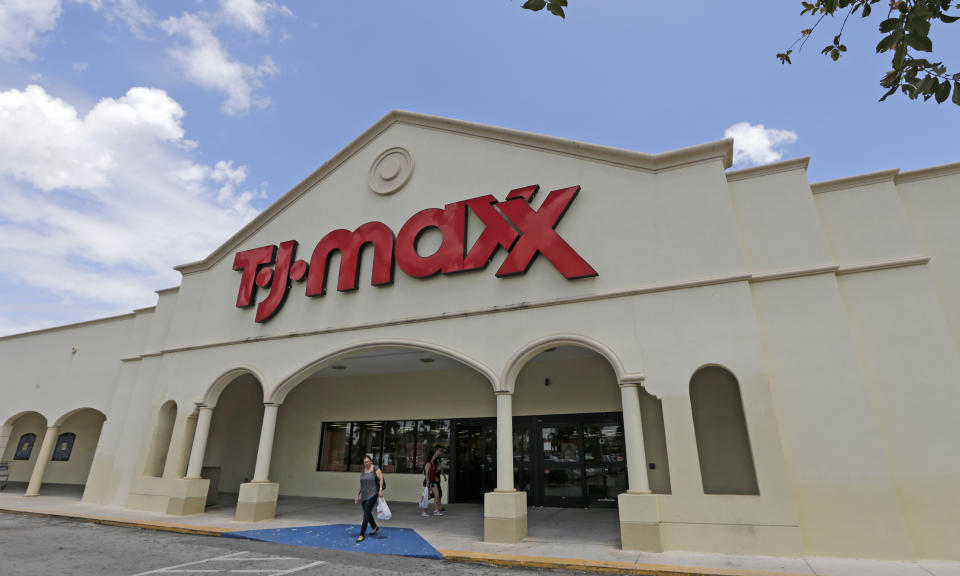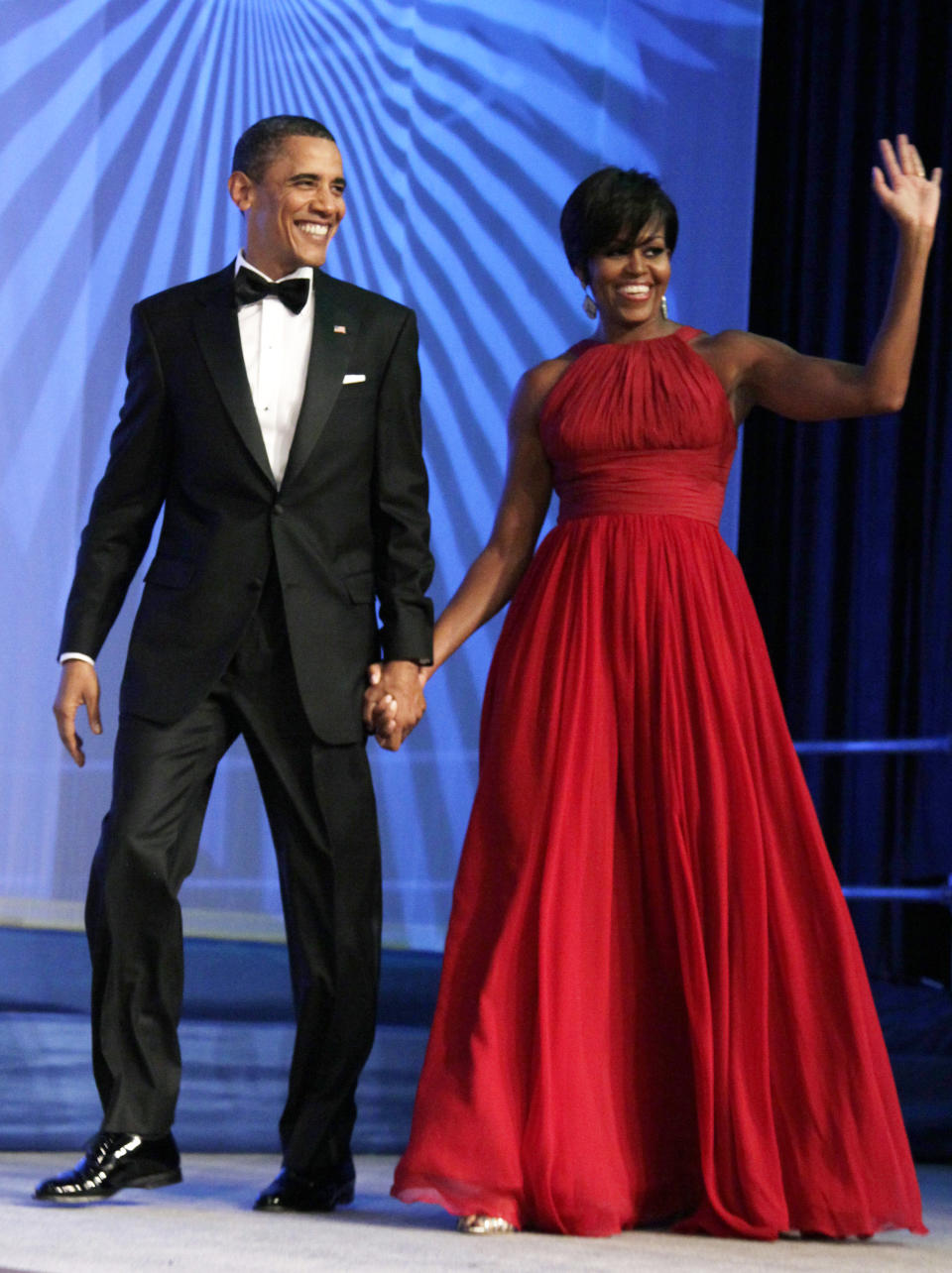TJX, Kohl's report earnings — What you need to know in markets on Tuesday
For the first time since mid-March, the Dow is back above 25,000.
After Treasury Secretary Steven Mnuchin over the weekend said the U.S.-China trade war was “on hold,” investors took these comments as a sign that trade tensions between the world’s two largest economies would reach a market-friendly solution.
As a result, markets around the globe rallied Monday with the Dow leading the way on Monday, rising 1.2%, while the S&P 500 rose 0.7% and the tech-heavy Nasdaq gained 0.5%. The small-cap Russell 2000 added 0.5% to reach a new all-time high, but lagged the benchmark S&P 500 after leading markets last week.
On Tuesday, investors will have a fairly busy earnings schedule with AutoZone (AZO), Kohl’s (KSS), Intuit (INTU), Hewlett Packard Enterprise (HPE), and TJ Maxx parent company TJX (TJX) all set to report results.
Reports from Kohl’s and TJX will be closely tracked by investors during a week that is expected to be very retail heavy on the earnings side.
The economic calendar, however, will be nearly empty with only the Richmond Fed’s regional manufacturing survey set for release.

The Obamas go to Netflix
On Sunday, President Donald Trump asked where Barack Obama had been.
On Monday, Netflix answered. The Obamas have gone to Hollywood.
The streaming video service said Monday that the former president and first lady, “have entered into a multi-year agreement to produce films and series for Netflix, potentially including scripted series, unscripted series, docu-series, documentaries, and features.”
The Obamas’ new production company is called Higher Ground Productions. Very subtle.

On Twitter, the replies to Netflix’s announcement were predictable — “I’m canceling Netflix now,” dozens of users declared.
Sure. Go ahead. There are plenty of other options — Hulu, Amazon Prime Video, HBO Go, SlingTV, YouTube TV, DirecTV Now, PlayStation Vue, and fuboTV. There’s also cable.
Viewed only through a business lens, the Obamas now becoming content producers as Netflix spends $8 billion this year to develop its own original content makes you think that we must certainly be reaching a point of saturation.
But in today’s business world, all decisions are now political.
That many viewed Netflix’s partnership with the Obamas as a political action worth rebelling against is not surprising. It seems that large numbers of people have come to believe that our consumption choices are actually meaningful political acts.
Just ask the NFL and Papa John’s.
The goal of a company that makes a good or provides a service is to get the most possible people to buy that good or use that service.
Papa John’s (PZZA), for instance, does not care who its customers voted for so long as they order pizza regularly. The NFL does not care who its fans voted for so long as they watch games, watch commercials, and care what happens every Sunday.
But when Papa John’s former CEO John Schnatter said its sales had been hurting because the NFL hadn’t gotten players to stop kneeling for the national anthem — which in Schnatter’s view was leading to a decrease in viewership and a decrease in pizza orders — everyone ended up upset, and Schnatter ended up out of a job.
Whether or not NFL player protests and Trump’s aggressive attacks against the league and its players really did have an impact on how much pizza Americans ate in the third quarter of 2017 is still an open question. It is the sort of qualitative evaluation of a business’ performance that cannot be sufficiently disproved to be dismissed, and yet cannot be definitively accounted for.
Whether NFL ratings in 2017 were down because fewer people are watching TV, or because players were kneeling for the national anthem, fits into the same category — hard to prove, harder to disprove.
And so the debate rages on.
Certainly, Netflix knew that there would be an actual or perceived “backlash” from its partnership with the Obamas on their new venture. In future quarters, expect analysts to search for answers as to whether this deal impacted subscriber growth.
For individuals, seeing all actions as political choices might be a big change in understanding your place in society, or it might be a small departure from the way you’d previously seen your role in the world.
But for corporations, becoming a politically meaningful entity has been a radical and uncomfortable change.
In 2017, U.S. businesses were hit with an all-at-once realization that every company, it seemed, would eventually be connected with, or co-opted by, a political movement. Companies would then be compelled to respond, upsetting an unknown number of current, future, or former customers.
ESPN, tiki torches, pizza, and Skittles have all now become political symbols.
Look at Roseanne, the NFL, Saturday Night Live, any awards show, and now Netflix, and we see a series of cultural battlegrounds where consumers can resist Trump or pledge allegiance to the flag.
It might seem, then, that Netflix didn’t make an active choice to become a politicized entity and partner with the Obamas so much as it accepted its inevitable fate — its fate as a once-apolitical streaming video service now forced to pick a side.
Which is better than the alternative of pretending like consumers don’t care.
—
Myles Udland is a writer at Yahoo Finance. Follow him on Twitter @MylesUdland


